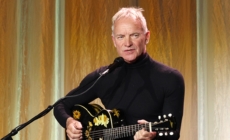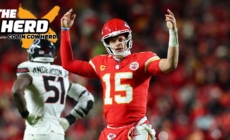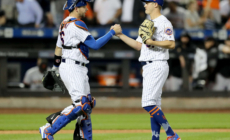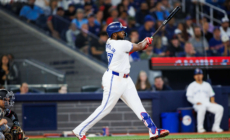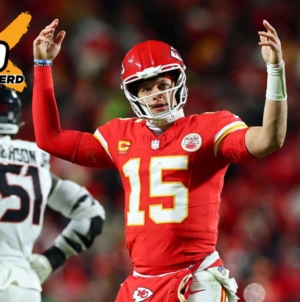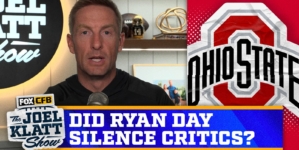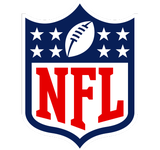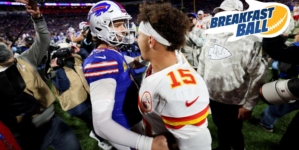-
Sting postpones multiple concerts due to illness preventing him from singing - 8 mins ago
-
Two caught on camera stealing fire equipment from U.S. Forest Service in Southern California - 28 mins ago
-
Honolulu man accused of sexually assaulting, fatally strangling high school student in 1977 - 34 mins ago
-
Tom Brady discusses officiating and the Chiefs | The Herd - 38 mins ago
-
Veteran Closer Joins Talented AL Bullpen on $7 Million Contract: Report - 43 mins ago
-
Hughes fire explodes north of Castaic, forcing evacuations - about 1 hour ago
-
Teen who bludgeoned and stabbed mother to death gets conviction thrown out - about 1 hour ago
-
Mets Would Land Vladimir Guerrero Jr. in Blockbuster 5-Player Trade Prediction - about 1 hour ago
-
Nelly speaks out following President Trump’s Liberty Ball - about 1 hour ago
-
Altadena was his paradise. Could an evacuation order have saved him? - 2 hours ago
Are the superteam Dodgers bad for baseball? Is it time for an MLB salary cap?
The Dodgers remain the talk of the sport this offseason as they continue hauling in MLB’s top talent. Their latest flurry of activity has increased their projected 2025 payroll to above $370 million, which clears the next-closest teams, while giving the defending champions perhaps their best roster yet.
It all has many wondering what’s next, not just for the Dodgers but Major League Baseball.
FOX Sports MLB experts Deesha Thosar and Rowan Kavner weighed in on the Dodgers’ sweeping supremacy and how it could impact the future of the league.
Moderator: The Dodgers, coming off a dominant World Series run, have only added to their superteam and assembled one of the best rosters we’ve ever seen. It has the makings of a potential dynasty and has made them the sport’s biggest villains since the Yankees of the late 90s/early 2000s. Is this ultimately good or bad for baseball?
Rowan Kavner: The payroll discrepancy is not a good thing for baseball, but we also haven’t seen repeat winners since the early 2000s. There is still parity in the sport (for now), and what the Dodgers are doing also shouldn’t be maligned so much. Yes, they can outspend teams, but their success goes far beyond that. There’s a reason players want to go there. They’ve built a machine through spending, development and opportunism.
The Red Sox could have paid Mookie Betts what he was worth, but they didn’t. The Braves could have made more of an effort to keep Freddie Freeman, but they didn’t. The Angels didn’t even try to match the offer for Shohei Ohtani that most other contenders would’ve gladly taken. I would argue the bigger issue is the lower payroll teams not doing more to field a competitive group.
Deesha Thosar: One way or another, what the Dodgers are doing is good for baseball — even if they are irritating 29 other fan bases — because they are prioritizing winning. To lean on what Rowan said, owners who are crying poor should either look at the Dodgers’ model and be inspired to change their own methods, or they should sell their teams to someone who will develop good players and find, at the very least, creative ways to stretch the payroll into building an exciting roster.
What’s the point of punishing teams that are successful within the existing MLB rule book, while rewarding incompetent ownership groups, largely made up of billionaires, who are apathetic to winning?
Kavner: And to go back to the unfairness/competitiveness aspect, yes, it would have kicked up the Dodgers/Padres rivalry a notch — which I would say right now is the best in baseball — had Roki Sasaki chosen to join San Diego and face Shohei Ohtani and Yoshinobu Yamamoto rather than play alongside them, but can you really blame him? He’s trying to maximize his value while he has the chance, and the Dodgers’ spending and successful operation show players they’re serious about winning for the long haul.
Credit to the rest of the NL West, too, which rather than crying foul is also still trying to win. The D-backs, Padres and Giants aren’t going anywhere. (Well, most of the rest of the NL West, at least.)
Do you believe Japanese ace Rōki Sasaki would have insisted on being posted two years early if he weren’t signing with the Dodgers this winter?
Thosar: Based on how this all played out, there seems to be little to no evidence that Sasaki was ever considering going anywhere but with the Dodgers — whether he was posted earlier or later. Los Angeles targeted Sasaki for years, and from his point of view, what’s the point of waiting? The Dodgers can help Sasaki develop his arsenal now, rather than the 23-year-old potentially harming his arm and increasing his chance for injuries by placing more focus on just high velocity. (Already, his four-seamer touches 102 mph.)
Kavner: I’m surprised he did it now, but I don’t think the Dodgers are the reason for that decision. Wherever he ended up, he was forfeiting a huge sum (at least for the next six years) by making this choice. At the winter meetings, even Sasaki’s agent, Joel Wolfe, had a hard time saying definitively why Sasaki didn’t wait two more years, when he would have almost certainly made nine figures.
It sounds like, especially after playing in the WBC, Sasaki just decided he wanted to get to MLB as quickly as possible. Wolfe mentioned the tragedies that Sasaki has experienced — Sasaki lost his father and paternal grandparents in the devastating 2011 tsunami in Japan — have shaped his outlook on life. He knows there are no guarantees, so if he has the chance to do something now, he doesn’t want to wait. I can’t blame him for that.

What was the Dodgers’ smartest move this offseason?
Thosar: Loading up on arms. More specifically, adding Blake Snell to the mix and getting him to agree by increasing his annual average value (he actually received the highest AAV among Corbin Burnes and Max Fried) while offering the smallest overall contract within that trio. To further sweeten the deal, and perhaps get Snell to take deferred money, the Dodgers seemed to blow Snell away with a colossal $52 million signing bonus. The deferred money allowed the Dodgers to keep adding to build the roster on the margins, and they now have a rotation, on-paper, that is made up exclusively of aces.
I view their biggest concern as their recent negative trend of pitching injuries, and that’s still something to look out for as Shohei Ohtani returns to the mound and Roki Sasaki begins his development in Los Angeles, but they have at least safeguarded the likely possibility of arm injuries by creating a significant pool of depth.
Kavner: Can I say enticing Sasaki for hundreds of millions less than he would have gotten on the open market? If we’re sticking to the more traditional free agents, though, I’ll go with bringing back Teoscar Hernández. It’s not that three years and $66 million is some sort of massive steal, but I thought he was the best outfielder on the market behind Juan Soto and wondered if he’d end up getting more from a team desperate to make a splash.
As stacked as the Dodgers’ roster is, there were a ton of question marks in the outfield had he not returned (especially with Mookie Betts expected to return to the infield). Hernández, a fan favorite and seed-throwing joy in the clubhouse, provides stability to a group determined to preserve its championship mojo.
Is there any move the Dodgers made this winter that you didn’t like?
Kavner: I’m surprised they’re planning to put Mookie Betts at shortstop and not second base, but extending Tommy Edman with Miguel Rojas and now Hyeseong Kim on the roster at least gives them options if it doesn’t work out. It’s really difficult to poke holes in anything they’ve done. A+.
Thosar: This is nitpicking, but I thought the addition of Michael Conforto was weird to begin with, and then to give him $17 million was way more than I expected for someone who is five years removed from his best season. The deal would make more sense if they didn’t re-sign Teoscar Hernández.
What do you think is the ceiling for this team in the regular season?
Thosar: A lot of things have to go right (health, primarily) but in their best-case scenario, if everything is clicking on all cylinders, I’ll go with 105 wins. They wanted the pressure, they got it.
Kavner: They set their franchise record for wins with 111 three years ago; I’ll say 115. The team is absolutely stacked, but how many times will we actually see Blake Snell, Yoshinobu Yamamoto, Tyler Glasnow, Shohei Ohtani and Roki Sasaki all pitch in order? There are a lot of health question marks, but this is undoubtedly the most talented group they’ve assembled during their run of excellence. (I’m taking the over on 105.)
What seems more likely for MLB when the next CBA expires after the 2026 season: a salary cap or a lockout?
Kavner: Seeing how the discrepancies in payrolls are only getting worse, it seems like the latter. The players absolutely do not want a salary cap, although one positive with that would be a salary floor (which I think is the bigger issue). You’re not getting one without the other, and where do you set either when the highest-payroll teams are so high and the lowest-payroll teams are so low? I could see rules about deferrals getting modified, but this is probably shaping up for an ugly battle.
Thosar: At this point, I would be surprised if there wasn’t a lockout. The industry seems to be expecting it, which likely means it will be ugly, as Rowan alluded to. But I still think there are way too many moving parts with a salary cap that would allow the league to actually pull it off.
A primary talking point in the next CBA will be the future of local TV rights, and there’s probably enough overlapping concern among MLB owners and players to find a solution that works for everyone (pooling all the TV money for both high and low revenue teams, for example) that will push the possibility of a salary cap to the CBA after this next one.

So, could you see the players possibly caving on a salary cap if it meant avoiding being locked out for a full season? The ghost of Marvin Miller eagerly awaits your answers.
Thosar: Things could change, but I don’t think all 30 owners are aligned on wanting a salary cap well enough to be able to pull off that kind of ultimatum.
Kavner: If the owners make a salary cap a hard stance, any number of missed games will be possible. It’s just too early to know at this point how far owners are going to go with that demand, and that gets back to the griping about what the Dodgers are doing. We still have two seasons before we know how this is going to play out (although we’ll rightfully be talking about this throughout the 2026 season). So, enjoy next season, everyone! I promise there will still be 11 teams other than the Dodgers who’ll get a chance to play in October.
Thosar: Especially because Rob Manfred & Co. made it easier for small-market, low-revenue teams to sneak into October when they expanded the playoffs. Superteams going for it and inviting public pressure to be successful is fun to talk about, right? Right!
Kavner: If the Padres beat the Dodgers in the NLDS, which many expected to happen, how much are we talking about demands to fix the game?
Thosar: Well, I think the damage is done in that sense. Whether or not the Dodgers repeat as champions, the calls to fix the game have been put in motion by the way they conducted their offseason and the previous one. The league will remember their exorbitant spending, including the topic of deferrals, either way.
Kavner: That’s fair. The deferrals are significant and noteworthy, but if other teams want to offer exceptionally high signing bonuses to get players to agree to defer some money, by all means, they’re free to do so. The highest payroll in the sport doesn’t always win the World Series, we haven’t seen a repeat championship winner since 2000, and until a new CBA is put in place, there’s not much to do about it other than try to field a competitive roster.
The D-backs made the World Series with a payroll that ranked in the bottom half of the sport two years ago. That’s not a sustainable recipe for success, but they saw the possibilities when you secure a spot in the dance, and they’ve spent the past couple of years spending enough to stay relevant. Not every deal has worked out, but they’re going to be a formidable group in 2025. More teams should follow suit. Or sell to someone who will try harder.
Rowan Kavner covers the Dodgers and NL West for FOX Sports. He previously was the Dodgers’ editor of digital and print publications. Follow him on Twitter at @RowanKavner.
Deesha Thosar is an MLB writer for FOX Sports. She previously covered the Mets for the New York Daily News. Follow her on Twitter at @DeeshaThosar.
[Want great stories delivered right to your inbox? Create or log in to your FOX Sports account, follow leagues, teams and players to receive a personalized newsletter daily.]

Get more from Major League Baseball Follow your favorites to get information about games, news and more
Source link
